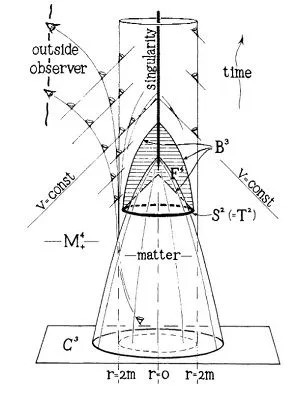A True Yunatic
Some minds don’t just chase knowledge – they shape the very boundaries of reality. Roger Penrose is one of those rare beings who lives at the intersection of mathematics, physics and imagination. Whether he’s unraveling the nature of black holes or questioning the source of consciousness, Penrose brings a kind of quiet boldness to every mystery he touches.
A longtime collaborator of Stephen Hawking and a Nobel Prize winner in Physics, he helped prove that singularities – like the one inside a black hole – are real, inevitable and written into the laws of the universe. Penrose sees math as a language of the cosmos – elegant, eternal and full of strange clues.
“In the end, the universe can only be explained in terms of consciousness.” – Roger Penrose
The Inner Child
Penrose’s inner child is curious, patient and drawn to puzzles. From Escher drawings to Penrose triangles, he was always fascinated by paradoxes – the impossible shapes and silent symmetries that make the universe hum. That same childlike awe fuels his search for patterns behind physics, perception and possibility. He doesn’t just want to solve the puzzle – he wants to understand why the puzzle exists at all.
Tribbles
Penrose’s tribbles are vast and visionary:
- Conformal Cyclic Cosmology – His theory that the universe endlessly renews itself in great cosmic cycles.
- The Penrose Singularity Theorem – Proving that black holes aren’t just science fiction – they’re mathematical fate.
- The Emperor’s New Mind – A bold challenge to artificial intelligence, arguing that consciousness may not be computational.
- Penrose tiling – A visual, mathematical design that never repeats – used in everything from art to quantum theory.

Connected with the Yuniverse
Penrose doesn’t see the universe as chaos – he sees it as a grand, hidden geometry, unfolding in time. To him, the cosmos isn’t random – it’s whispering patterns and mathematics is how we learn to listen.
Spiritual
Penrose doesn’t preach belief – he cultivates awe and sees mystery as sacred. His universe isn’t simple – it’s strange, deep and quietly profound.
Roger Penrose reminds us that the deepest truths may live between equations, dreams and the edge of reason itself.